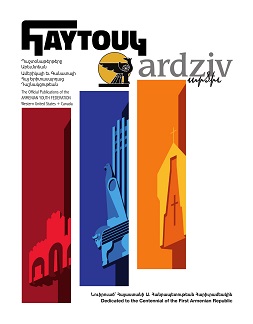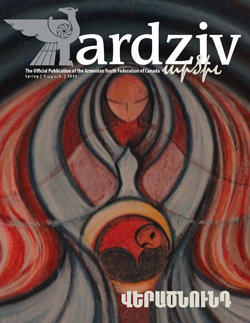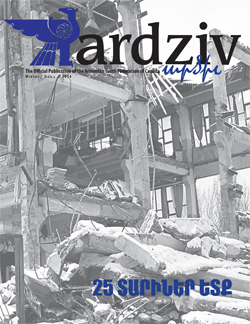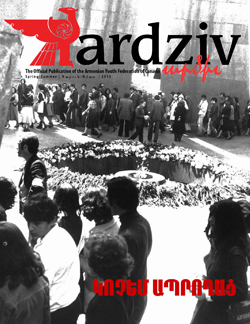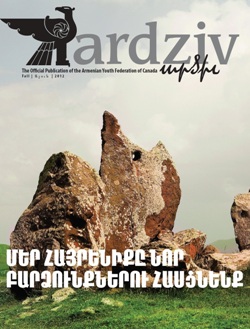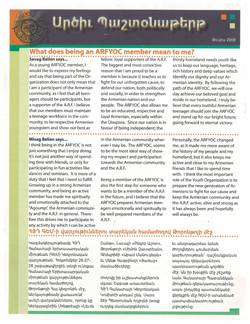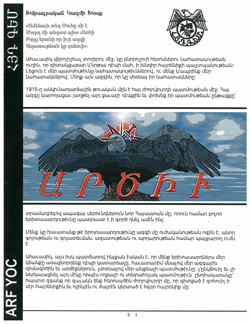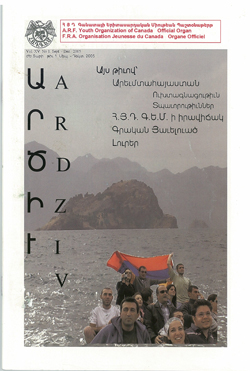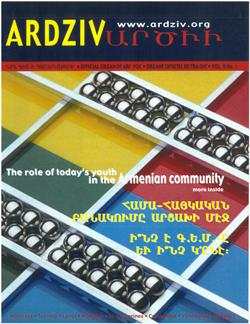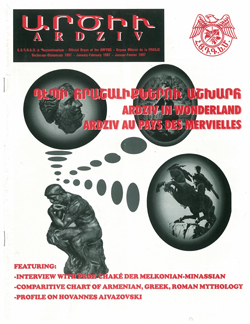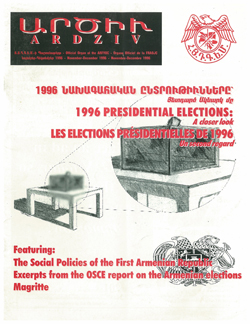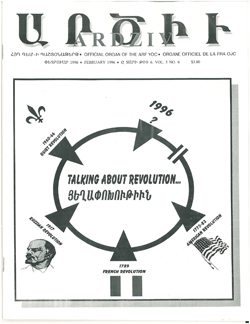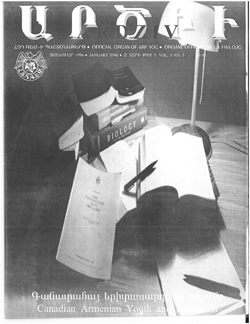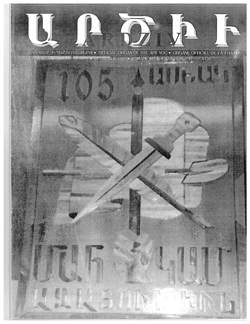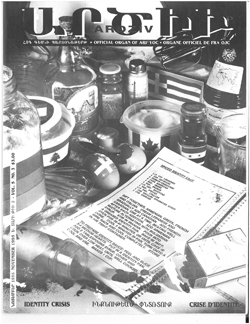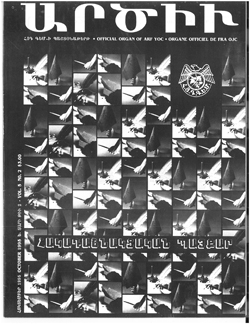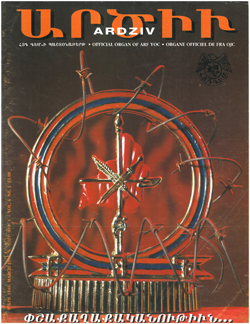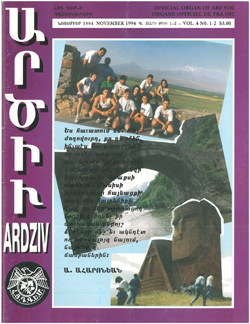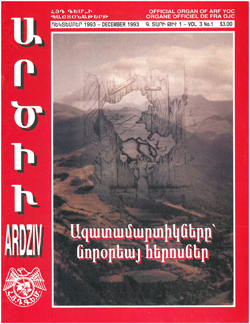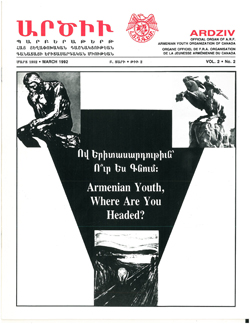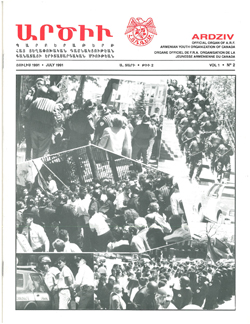Suit Up!
By: Karnig Hasserjian | Posted on: 12.02.2014Warning: Undefined array key "ssba_bar_buttons" in /home/u108981792/domains/ardziv.org/public_html/wp-content/plugins/simple-share-buttons-adder/php/class-buttons.php on line 602
Warning: Undefined array key "ssba_bar_buttons" in /home/u108981792/domains/ardziv.org/public_html/wp-content/plugins/simple-share-buttons-adder/php/class-buttons.php on line 602
Warning: Undefined array key "ssba_bar_buttons" in /home/u108981792/domains/ardziv.org/public_html/wp-content/plugins/simple-share-buttons-adder/php/class-buttons.php on line 602
Warning: Undefined array key "ssba_bar_buttons" in /home/u108981792/domains/ardziv.org/public_html/wp-content/plugins/simple-share-buttons-adder/php/class-buttons.php on line 602
Nearly every day we hear about something else Armenia needs. Environmental regulations, dissolution of monopolies, elimination of oligarchs, free and fair elections, a strong Diaspora, a strong Artsakh, gender equality and the elimination of domestic violence – The wish list goes on. We’ve all gotten used to thinking if we could only have that one crucially important missing piece of the puzzle (pick any from the list above), then everything else would come neatly to its place. Personally, I can’t help but be frustrated by our tendency to spot problems and assign blame as though we are international bystanders. We all know the end results we seek, and the impressive and sudden reforms that could conceivably get us there – but perhaps we have to stop looking for get-rich-quick schemes. As it is for all developing nations, it is a long hard road to prosperity. It is for this reason that I prefer to analyze circumstances, not with the hope of finding yet another individual or corporation to blame Armenia’s problems on, but rather to look for ways to leverage our strengths to overcome our weaknesses.
From my point of view, the most important vitally critical area of concern for Armenia is its economy. All other social and environmental matters will have a fighting chance to come to a resolution if the economy can stand on its own two feet. It is based on this belief, and the approach I mentioned above that I have to come to the conclusion that what Armenia needs most today are Investment Bankers. Yes, I’m talking about the men and women in suits who work in downtown offices, manipulate excel sheets, prepare power point presentations, and convince you that “THIS” opportunity should not be missed because the returns are infinite and the risks are minimal. In other words, these are people that try to convince you that this investment opportunity has a risk-return profile that has been underestimated by the market, and you have had the good fortune to stumble upon this rare opportunity.
At the risk of upsetting critical readers, I will oversimplify the mechanisms by which the Armenian economy works, in order to point out some of the basic high level relationships without allowing micro factors to distract from the bigger picture. Every year a significant percentage of the population decides to leave Armenia, due to unfavourable working and living conditions, while the economy manages to grow (just barely), and the currency manages to stay relatively stable. Unemployment remains a big problem, and most of the economic growth does not accrue to the lower or middle class. This creates further divide between the rich and the poor and pushes those who can to leave and look for opportunities elsewhere. The reason the growth of the economy is limited is that most of the businesses are owned by a handful of families, and they are predominantly concerned with importing products and services. The lack of competition eliminates the imperative for growth, which drives most capitalist countries, while the lack of exports leaves the dram at risk of depreciating. For an economy that has an extreme trade deficit (that is, significantly more imports than exports), the risk of currency depreciation is a major threat to long term stability. Very few companies export anything out of Armenia, for various reasons, and this means most of the economic growth and currency stability is actually attributable to the spending from cash remittances that are funneled into Armenia by the Diaspora, and the demand generated from tourism.
The manufacturing and tech industries of the Soviet era, in which Armenia played an instrumental role, came to a dead halt in 1991. Today, major geographic and political constraints hinder the manufacturing and exporting of physical goods. On the sidelines, various other budding industries such as IT and outsourced financial services are attempting to change the economic landscape of Armenia. Unfortunately, the development of these new sectors is heavily restricted by a lack of access to capital. By nature, most of these start-ups are lean and carry few physical assets which can’t be used as collateral for debt financing, preventing them from accessing the cash necessary to grow and deterring new start-ups from attempting to develop these new industries.
Although we have seen a slightly growing economy over the last number of years, it is an unsustainable system, which depends on cash remittances (from the Diaspora), tourism (from the Diaspora), and mining of non-renewable resources. The biggest problem with this vicious cycle described earlier is that at some point, the cash remittances that enter the country to fund the families living in Armenia will stop as a result of entire families emigrating and no longer needing to support members living in Armenia. At some point, all that will be left are the extremely poor, who can neither afford to leave nor to purchase the monopolized expensive daily necessities. The growth will cease, and even the rich oligarchs that own all of the large businesses in Armenia will see their wealth stagnate. Although we don’t look admiringly at these folks, we should assume they know a thing or two about business, and the most important thing they know is to sell at the maximum valuation.
Armenia is for sale, everyone! Some of the oligarchs may stick around out of pride, but the rest are ready to liquidate and move on at the first sign of stagnation. The only problem is who will they sell to? When the disparity between the rich and the poor is so large, and a public market for the liquid sale of equity is nearly nonexistent, the only option these individuals have to sell it to foreign investors. This is not a new phenomenon and it has already started with the selling of many of Armenia’s assets including the cognac factory, electric network and generation facilities, and will likely continue for years to come. The only thing worse than having corrupt oligarchs with monopolies and paid politicians ruining Armenia’s economy is foreign monopolies ruling Armenia’s economy and controlling the politicians that make the rules.
So, when I say Armenia needs investment bankers, I am actually quite serious. We need these suits to do what they do best and convince the wealthy oligarchs to sell, and for investors to buy. The important caveat is that the investors are you and I. Developing the public securities market (which actually already exists) to encourage investments from the Diaspora, as well as from Armenia is, in my opinion, the only way to avoid continuing on the path of selling off our assets to foreign buyers. It is a solution that aligns the business interest of the oligarchs with the nationalist interests of all of us who dream of a better Armenia.
If you want to jump-start an economy, you need to invest into it. Besides donating money for the crucially important social and environmental problems we see in Armenia, it is time to invest money into solutions. Instead of blaming bad businesses and governments for being evil and corrupt, we need to invest in the good ones. Each of us has a different opinion on the most urgent issue in Armenia, and developing the investment banking sector, primarily with investments from the Diaspora, can allow each of us to invest in the businesses that work towards our particular ideals. The sectors that can transition Armenia’s economy from a groggy post soviet nap to an innovation-geared economy can finally access the funding they require to prosper. Creating this infrastructure involves improving the existing securities rules and regulations, and equipping regulators to be able to enforce the rules. Luckily, we don’t need to reinvent the wheel.
Yes, the existing environment for investing in Armenia is far from ideal which is a good reason why the infrastructure for public ownership of corporations is so primitive. However, the positives in the case of successfully developing it are immense and necessary. Public ownership of the largest corporations means no single individual will be in a position to manipulate government. Who knows, maybe with no single person to be accountable to, the government will actually work towards the betterment of society as a whole. This system would also create a Diaspora that is no longer only connected to its homeland by its thoughts, prayers, and good wishes, but rather with an economic interest. We can sit and watch others buy Armenia at a discount, or we can take a chance and put our money where our mouth is! Now all we need are some investment bankers…
I have purposely oversimplified the investing environment and the proposed correction plan, by ignoring the obvious shortcomings and difficulties of achieving what is inherently the development of a transparent, effective and liquid, venture capital and capital market environment. This is not the solution that will save Armenia, but it’s what I believe best addresses the threats outlined above, taking into consideration the lack of trust I have in our own government to take any positive steps. I share these thoughts with the hope that it will spark discussion around investing in the future of our homeland.










